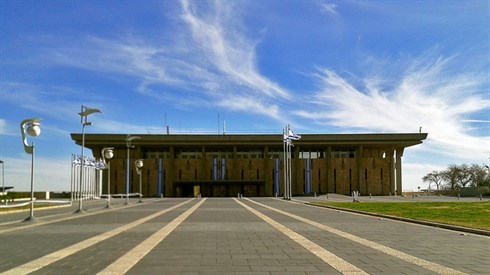83
Question
How can one source say “not to make mass Aliyah”, and the next source say making Aliyah is a Mitzvah? I am very confused. Please explain. Thank you.
Answer
ב"ה
Shalom
Allow me please to try to explain things.
When you say “not to make mass Aliyah”, you are referring to the Gemara in Ketubot (111a) which says that one of the oaths that G-d made the Jewish people take was not to return to Eretz Yisrael "as a wall', which is explained together forcefully or as you put "“not to make mass Aliyah”. The question is how to explain this oath. None of the Halachic writers wrote it down as A Halacha. It was viewed as Aggadic- material, dealing with more of the moral and spiritual aspect of the Torah but not as a prohibition. Some saw the oath as heavenly decree, that even if we had wanted to return to Eretz Yisrael we wouldn’t have been able to do so. There is much material on this, therefore I will suffice by quoting two Torah giants of the previous generation, who stand unchallenged on this issue. The Avnei Nezer ( Yoreh De'ah 453)wrote that if the nations of the world give us permission to make Aliya, then the oath no longer stands. The Ohr Same'ach wrote in a letter in regard to a meeting of the nations in San Remo in regard to the return of the Jews to Eretz Yisrael, that since the nations of the world gave the word that Eretz Yisrael is designated for the Jewish people, there is nothing more to fear of the issue of the oaths, and with the authorization of the nations of the world the Mitzvah (of return to ) Eretz Yisrael returns to its place.
All this was said, just because of the slightest possibility that the oaths actually forbid us to return to Eretz Yisrael. But now I according to all opinions this slightest fear no longer exists.
On the other hand the Ramban wrote very clearly in his addendum to the Sefer Hamizvot of the Rambam (#4) that the settlement of Eretz Yisrael is a "mizvat Aseh"- a positive commandment, requiring the Jews in every generation to settle in Eretz Yisrael.
Don't forget, this was written about 800 years before there was a state of Israel.
In addition, the Pitchei Teshuva in his commentary to the Shulchan aruch (Even Ha'ezer 75) writes in regard to the law in the Shulchan Aruch that a man can force his wife and vice versa to live in Eretz Yisrael , "that all times are equal to fulfill this mitzvah and it is agreed upon by all Poskim the Rishonim and Achronim."
So basically there is no contradiction. One is a reference of non- Halachic material which in any case, no longer applies, while the other sources write very clearly, that the Mitzva to live in Eretz Yisrael applies all generations
All the best

Omer Days I can shave/cut hair
Rabbi David Sperling | Iyyar 2, 5774

Hellel on a postponed Yom Haatzmaut
Rabbi Jonathan Blass | 27 Nisan 5764

Yom Haatzmaut Prayers
Rabbi Chaim Tabasky | 30 Nisan 5765




